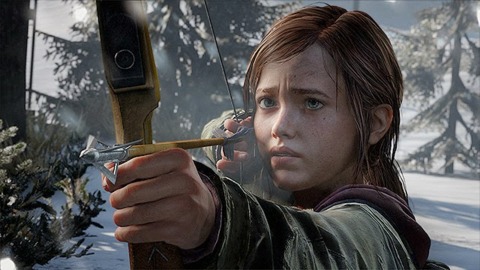The Emotional Connection to Video Games - The Last of Us
By Kenori 1 Comments

I am sitting in my living room as the prologue to The Last of Us finishes. The opening credits and sound bites are rolling, but its all just a blur of noise and haze. My head is in my hands, the controller forgotten on the table in front of me. There are tears in my eyes and I'm not really sure how they got there, and I am contemplating putting this game away and never touching it again. We are still within the first ten minutes of the game. Finally, after what seems like an hour, I pick up the controller again and steel myself for what lies ahead.
Gaming is generally considered a hobby of wish fulfillment. The idea of killing aliens, or bouncing on goombas, or solving complex puzzles allows us to wind down after a hard days work, relaxing while we (relatively) turn off our brains. But, while that might be the general idea, there are some games that come along that are special. There are some games that try to tell a better story than the bit of exposition between stages. There are games like The Last of Us.
Its hard to say what is truly the best part about the Last of Us. I could go on and on about how the player becomes so emotionally invested so early in the game, and that feeling of investment carries you through the entire narrative until its bitter, sad conclusion. I could talk about how the combat is cinematic and fast paced and brutal. I could talk about how the real-time crafting system brings the “survival” back into the survival horror genre, or how even though you gain a really great list of weapons, the most dangerous enemies are specifically designed to terrify and unnerve you every single time you fight them, and do their job perfectly. I could spend an even longer time talking about the wonderful voice acting and minimalist, heart-tugging score. But, of all the things The Last of Us is good at (and the list is quite expansive), what it does better than any other game I have played in a very very long time is bring all of these wonderful elements into a concise, cohesive whole that turns a great story with decent gameplay into something wholly different from any other video game I have ever played

As I've said in other reviews, there are other less traditional ways to tell a story in a video game, but The Last of Us tells a more traditional story better than nearly any other game out on the market today. The way it uses it's gameplay to sell its harsh, uncompromising world, the way it ramps up the horror by adding undertones of dark, moody moments. It is a hard game, emotionally, to play. It is a game that needs to be played in shifts, taking time to let it's moments sit with you as you contemplate things that have happened. A lot of times it aches to play it, the feeling of some dark, foreboding conclusion just around the bend as the game nears its final few hours making you want to put the controller down and walk away, picturing a happier world where these characters lived a better life.
Can games really provide such a deep emotional connection? Is it possible to become as emotionally invested in a game as you can in a movie or a piece of music? As I neared the last 80% of the game, I came across a small moment moment hidden in its depths, a small moment that shook me to my core in ways I have never felt happen in a game. Once again I had to put the controller down and sat as Ellie does, staring ahead, unspeaking, not moving, lost in her own dark thoughts.
Unequivocally, video games can tell just as much of a story as any movie or piece of music, a better one in fact. One that allows you to be more invested in the characters than you ever could in a movie. The tear stains on my coffee table are testament to that.
(Originally Written 07/14/2014)
